Sandisk Introduces Automotive Grade UFS4.1 Interface At Embedded World 2025
- By MT Bureau
- March 12, 2025

American computer technology company Sandisk has introduced what it claims is industry's first automotive grade UFS4.1 interface device – Sandisk iNAND AT EU752 UFS4.1 Embedded Flash Drive (EFD).
This not only strengthens its product portfolio but also supports the automotive industry by enabling faster and secure access to data.
The company's solution will support the requirements of Software Defined Vehicles (SDV), which use high volumes of data along with more frequent over-the-air (OTA) updates. The UFS4.1 interface enables software updates to happen faster.
The new solution is said to provide 2x the performance of Sandisk’s UFS3.1 device and double the capacity previously available in the market. The Sandisk iNAND AT EU752 UFS4.1 is available with upto 1TB of storage space.
Key features of the product include – health status reporting to prevent potential system failures while the vehicle is operating; fast boot replaces the need for a separate NOR device; the fast boot is also critical for safety systems such as rearview camera systems that need to be operational within two seconds.
The UFS4.1 has a claimed write speed of upto 3,900 MBPS and 4,200 MBPS of read speed.
Representational image courtesy: Erik Mclean/Pexels
ParkMate Rebranded As Blyp
- By MT Bureau
- July 03, 2025

Delhi-NCR-based smart parking and mobility solutions provider ParkMate has rebranded itself as Blyp, which it stated is part of its vision to become a tech-driven urban mobility ecosystem that goes far beyond parking.
Dhananjaya Bharadwaj, Co-Founder & CEO, Blyp, said, “The name Blyp represents speed, precision and simplicity – exactly what we want to deliver to every urban commuter. This rebrand is more than just a new look. It’s a reflection of our expanded mission – to reimagine urban movement through data, design and deep tech. We’re excited to introduce Blyp as the mobility companion of tomorrow’s India.”
With a new identity, Blyp aims to become an enabler of intelligent urban navigation, offering users real-time parking discovery, smart routing, EV compatibility and partner integration across both public and private sectors.
Abhimanyu Singh, Co-Founder & COO, Blyp, said, “ParkMate was our beginning – a product born out of a real problem. Blyp is our evolution. Over the years, we’ve grown from a parking solution into a full-fledged mobility tech platform. This rebrand allows us to think bigger, move faster and build deeper value for individuals, businesses and governments alike.”
Going forward, the company will roll out new features, expand into new cities and aims to build new infrastructure collaborations.
- RV College of Engineering
- RVCE
- Dover India
- Dover Corporation
- hydrogen
- Vivek Srivastava
- Tushar Banerjee
- Prashanth Santhanam
- Dr M P Shyam
- Dr K N Subramanya
- Rashtreeya Sikshana Samithi Trust
- Dr Geetha K S
- Dr Ujwal Shreenag Meda
Dover India and RV College of Engineering Establish Advanced Hydrogen R&D Facility
- By MT Bureau
- July 03, 2025
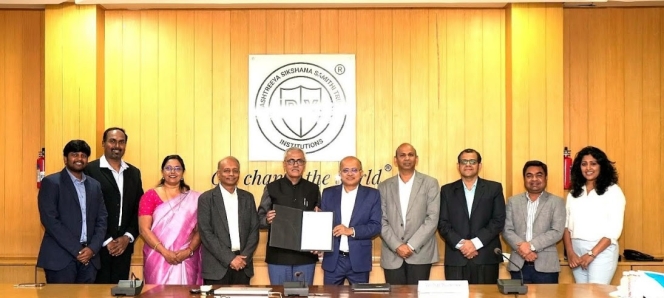
Dover India, part of USD 7 billion Dover Corporation, has joined with RV College of Engineering (RVCE), Bengaluru, to set up a laboratory in Materials and Component Reliability Testing under the Centre for Hydrogen and Green Technology, a Centre of Excellence at RVCE.
The facility will focus on research in the area of hydrogen technologies and advanced material reliability under extreme environments. The idea is to explore emerging areas in hydrogen technology such as sustainable materials, Internet of Things (IoT) and Industry 4.0 solutions. The lab will be housed within the RVCE campus.
The partners state such facilities, designed according to global standards, are first-of-their-kind in India and are available only in a handful of countries globally. It will bring over 20 technologists from Dover and RVCE to work on next-generation research focusing on generation, storage, transportation, handling, safety and end-applications for hydrogen.
Established in 2021, Dover India’s R&D arm in Bengaluru, is claimed to have emerged as a leading Innovation Centre focusing on prognostics, tribology, corrosion and coatings, polymer synthesis and material characterisation.
Vivek Srivastava, R&D Head, Dover India, said, “Collaborating with RVCE enables us to foster a strong academia-industry partnership that will fuel the next wave of clean energy innovation and cover the entire spectrum of basic and applied research in this area.”
The Memorandum of Understanding (MoU) formally signed between the two organisations saw participation from Dover India’s Tushar Banerjee, Vice President & Managing Director and Prashanth Santhanam, Senior Director – Finance. Dr M P Shyam, President – Rashtreeya Sikshana Samithi Trust (RSST), Dr K N Subramanya, Principal – RV College of Engineering and Dr Geetha K S, Vice Principal – Strategic Higher Education Leader, Expert in STEM Curriculum Development, Research & Innovation and Dr Ujwal Shreenag Meda, Coordinator, Centre for Hydrogen and Green Technology represented RVCE.
MoRTH Announces New Motor Vehicle Aggregator Policy To Bring In More Accountability & Transparency
- By MT Bureau
- July 02, 2025

The Ministry of Road Transport & Highways (MoRTH) has introduced the Motor Vehicles Aggregator Guidelines, 2025, a revamped policy aimed at modernising the ride-hailing sector with a focus on safety, driver welfare and transparent operations. Under the new guidelines, a structured fare system and clear cancellation penalties are now in place.
The policy states that the State Government's notified fare will serve as the base fare, wherein aggregators can charge a minimum of 50 percent below during non-peak hours and a maximum of two times the base fare during peak demand (as compared to 1.5x). A base fare for a minimum of 3km is chargeable to compensate for dead mileage.
Drivers are guaranteed at least 80 percent of the fare, with daily, weekly or fortnightly settlements. For aggregator-owned vehicles, drivers receive at least 60 percent of the fare.
A penalty of 10 percent of the fare (up to INR 100) may be imposed for unvalidated cancellations by either the driver or the passenger. No charge for dead mileage will apply unless the ride distance is less than 3km, the fare will only be charged from origin to destination.
The new policy introduces important provisions for aggregators:
Passenger Insurance: A minimum insurance cover of INR 500,000 for passengers is now mandatory.
Aggregators cannot prevent drivers from working with multiple platforms. A mandatory in-app rating system for both drivers and passengers is required to ensure quality service.
Furthermore, a comprehensive mandatory 40-hour Induction Training Programme is now compulsory for drivers, covering app usage, legal provisions, first responder training, safe driving and sensitivity towards gender and Divyangjans.
Drivers must undergo mandatory medical examinations, psychological analyses and police verification. Aggregators will also need to provide a Health insurance (minimum INR 500,000) and term insurance (minimum INR 1 million) for each driver, with annual increases.
Annual refresher training is now mandated, with quarterly training for drivers with low ratings. Aggregators are not allowed to onboard vehicles older than 8 years from their initial registration. The app and website (aggregator) must disclose the proportion of fare and incentives provided to drivers.
To ensure accessibility, the aggregator apps must now include special features for Divyangjans, which also provides for divyangjan-friendly vehicles mandated by State governments.
Aggregators must maintain a 24x7 control room and call centre with the vehicles requiring functional tracking devices linked to government control centres, with in-app mechanisms to detect route deviations and alert authorities.
The aggregators are responsible for the safety of all passengers, particularly children, women and Divyangjans.
- Traton Group
- L&T Technology Services
- LTTS
- ADAS
- autonomous
- Alind Saxena
- Navistar
- MAN
- Scania
- Volkswagen Truck & Bus
- International
Traton Group Onboards L&T Technology Services As Strategic Partner To Support Global R&D Transformation
- By MT Bureau
- July 02, 2025
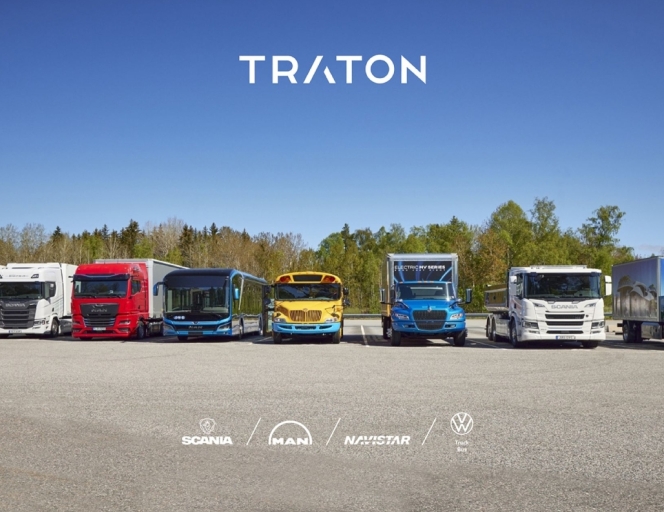
Bengaluru-headquartered engineering R&D services company L&T Technology Services (LTTS) has been selected by the Traton Group, one of the world’s leading manufacturers of commercial vehicles housing iconic brands such as Scania, MAN, International and Volkswagen Truck & Bus, as a strategic engineering partner.
As per the understanding, Traton Group will leverage LTTS’ Mobility segment to build a unified, future-ready product-development platform that delivers scale, speed and sustainable mobility solutions.
The automotive major recently consolidated its global R&D ecosystem to unlock cross-brand synergies while expanding the share of battery-electric vehicles in line with its 2029 profitability and sustainability targets.
On the other hand, LTTS’ will provide engineering support, from mechanical and software engineering to digital systems integration - across key development hubs in Sweden, Germany, the United States, Poland and India.
The collaboration will focus on software-defined vehicle architectures, electrified powertrains, autonomous & ADAS feature development and advanced digital engineering toolchains.
Alind Saxena, Executive Director & President - Mobility & Tech, L&T Technology Services, said, “Being selected by Traton Group is a testament to LTTS’ leadership in next-generation Mobility engineering. This collaboration underscores our commitment to delivering cutting-edge solutions that align with Traton’s vision of sustainable and intelligent transportation. With our proven track record in engineering transformation, we are excited to help Traton achieve its ambitious goals of electrification, autonomy, and digital innovation while redefining the future of commercial mobility.”


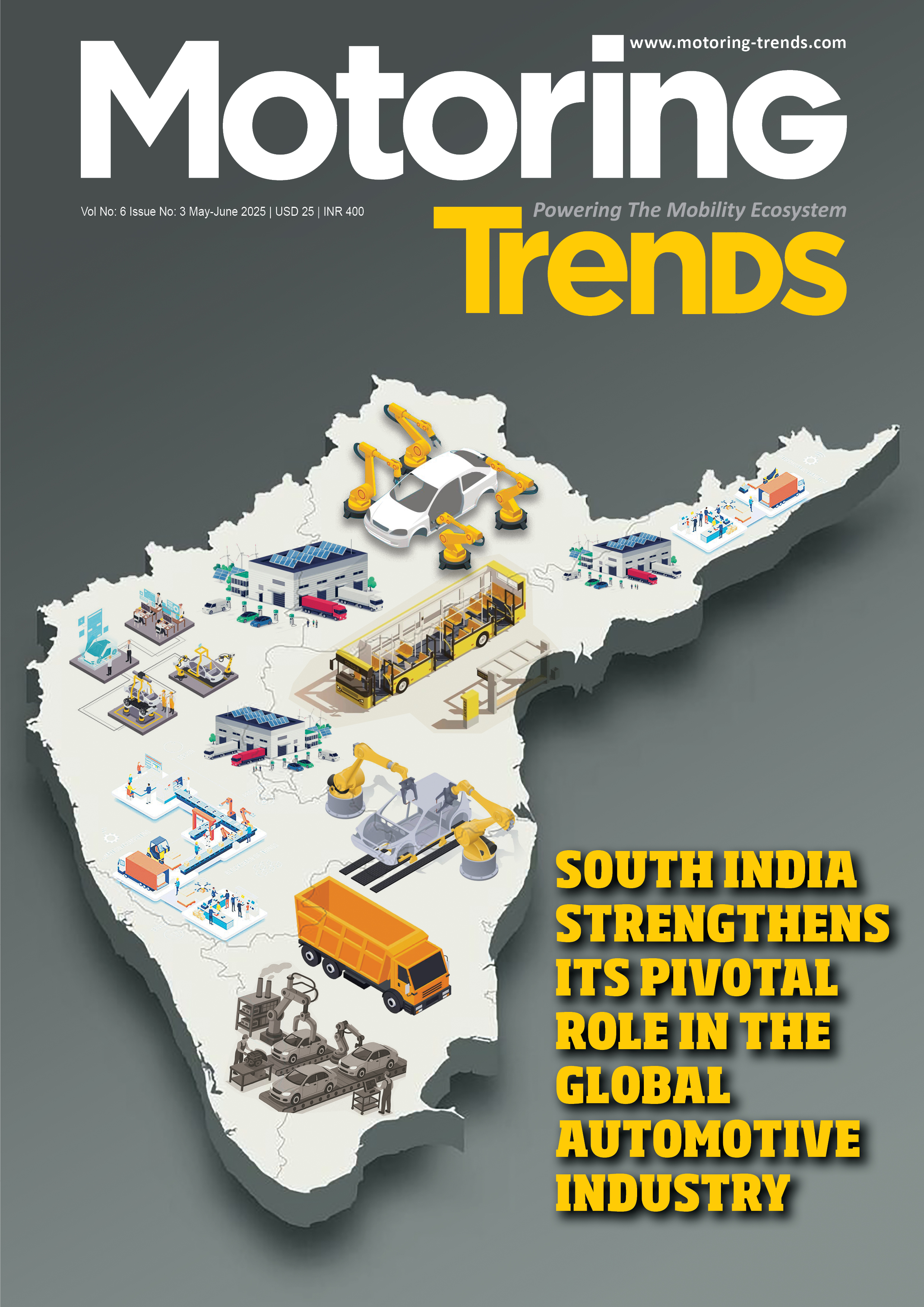
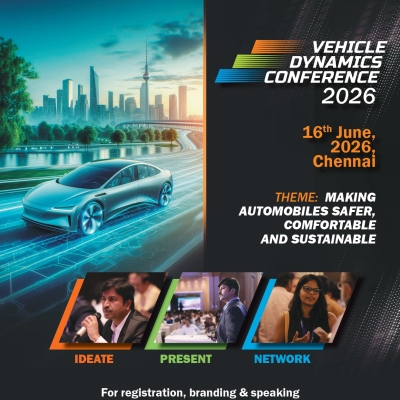
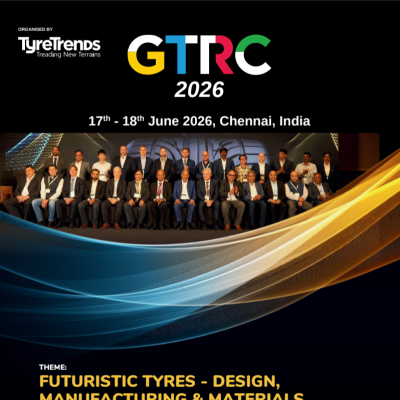
Comments (0)
ADD COMMENT